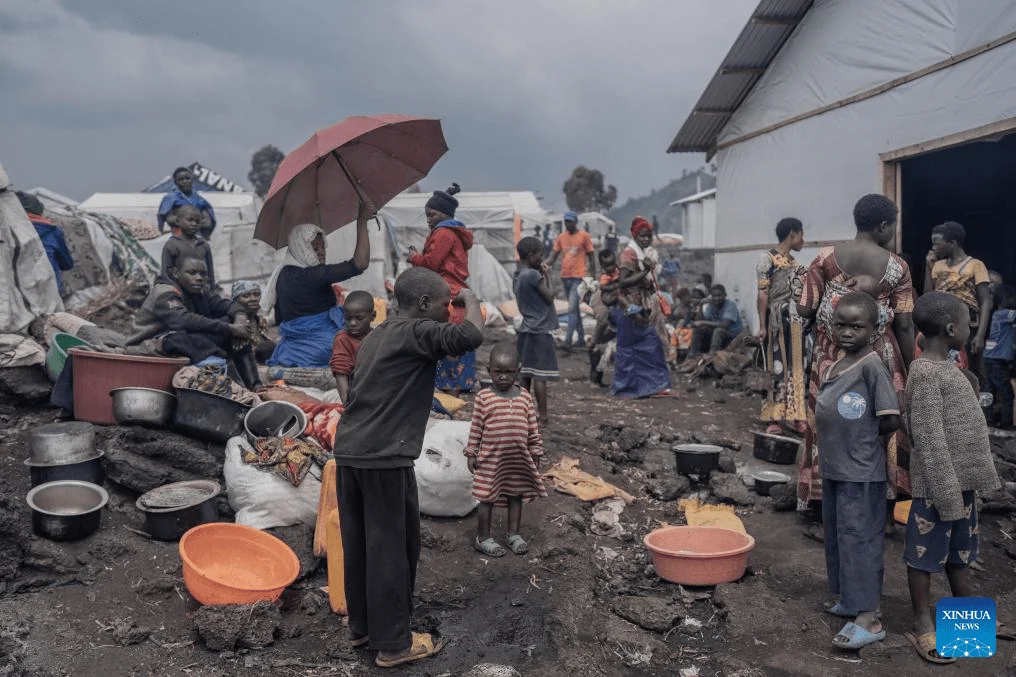Kinshasa, Democratic Republic of Congo – The Democratic Republic of Congo (DRC) has been declared a high-burden country and the epicentre of typhoid fever in Africa, following a surge in reported cases. The World Health Organization (WHO) and DRC’s Ministry of Health have issued a joint statement raising alarms over the growing threat of typhoid fever, which has severely impacted public health infrastructure and communities across the nation.
Typhoid Fever Surge: A Public Health Crisis
Typhoid fever, a life-threatening illness caused by the bacterium Salmonella typhi, is typically transmitted through contaminated food and water. In recent years, the DRC has experienced a sharp increase in typhoid cases, making it one of the countries hardest hit by the disease on the African continent.
Health officials in the DRC reported tens of thousands of new cases in 2023 alone, with children being the most affected. The outbreak has placed significant strain on the country’s already overstretched healthcare system, and the lack of access to clean water and proper sanitation in many parts of the country has exacerbated the situation.
Contributing Factors to the Epidemic
A number of factors have contributed to the DRC’s high burden of typhoid fever. These include:
- Poor Sanitation and Water Quality: Many regions in the DRC suffer from a lack of basic sanitation facilities, and access to clean drinking water remains a major challenge. Contaminated water sources are a primary vector for typhoid fever transmission.
- Overcrowded Living Conditions: In urban areas such as Kinshasa, overcrowded living conditions and poor waste management have created an environment where diseases like typhoid can spread rapidly.
- Limited Healthcare Resources: The country’s fragile healthcare infrastructure has made it difficult to manage the outbreak. Medical facilities in rural areas are often under-resourced and lack the capacity to treat severe cases effectively.
- Antibiotic Resistance: The rise of antibiotic-resistant strains of Salmonella typhi is another major concern. These resistant strains are more difficult to treat and have contributed to the growing mortality rate associated with the disease.
Government and International Response
In response to the worsening situation, the DRC’s Ministry of Health has ramped up efforts to combat the spread of typhoid fever. This includes launching mass vaccination campaigns in high-risk areas and intensifying public health awareness programs aimed at improving hygiene practices. The ministry is also working to improve water and sanitation infrastructure in both urban and rural areas, with the support of international partners.
The World Health Organization has classified the DRC as a high-burden country for typhoid fever, meaning the nation is one of the regions with the highest incidence of the disease worldwide. WHO has mobilized resources to assist the DRC in its response to the outbreak, providing technical expertise, medical supplies, and financial support.
Dr. Tedros Adhanom Ghebreyesus, Director-General of WHO, expressed concern over the scale of the outbreak. “The DRC is facing a serious public health challenge with typhoid fever. We are working closely with the government to contain the spread and prevent further loss of life,” he stated.
Urgent Need for Long-Term Solutions
Experts believe that long-term solutions will be critical in addressing the root causes of the typhoid fever crisis in the DRC. Strengthening the country’s healthcare system, improving sanitation, and increasing access to safe drinking water will be essential to reducing the spread of the disease and protecting vulnerable populations.
Vaccination efforts have proven to be effective in preventing typhoid fever, but widespread vaccination coverage is still lacking in many parts of the country. International health organizations are calling for increased funding to expand vaccination campaigns and improve public health infrastructure.
Impact on the Population
The ongoing typhoid fever outbreak has had a devastating impact on communities across the DRC. In addition to the loss of lives, the economic toll on affected families has been severe. Many children are unable to attend school due to illness, and the cost of medical treatment for typhoid fever is often prohibitive for low-income families.
Typhoid fever can cause a range of symptoms, including prolonged fever, abdominal pain, and weakness, which, if left untreated, can lead to serious complications such as intestinal perforation and death.
Conclusion
The DRC’s declaration as the epicentre of typhoid fever in Africa highlights the urgent need for coordinated global efforts to tackle this growing public health crisis. With a fragile healthcare system and widespread issues related to clean water and sanitation, the country faces significant challenges in curbing the spread of the disease.
As the government and international partners continue their efforts to contain the outbreak, it remains critical to address the underlying factors contributing to the spread of typhoid fever. Through increased vaccination, improved sanitation, and strengthened healthcare infrastructure, the DRC can begin to reduce its high burden of typhoid and protect future generations from this preventable disease.




















